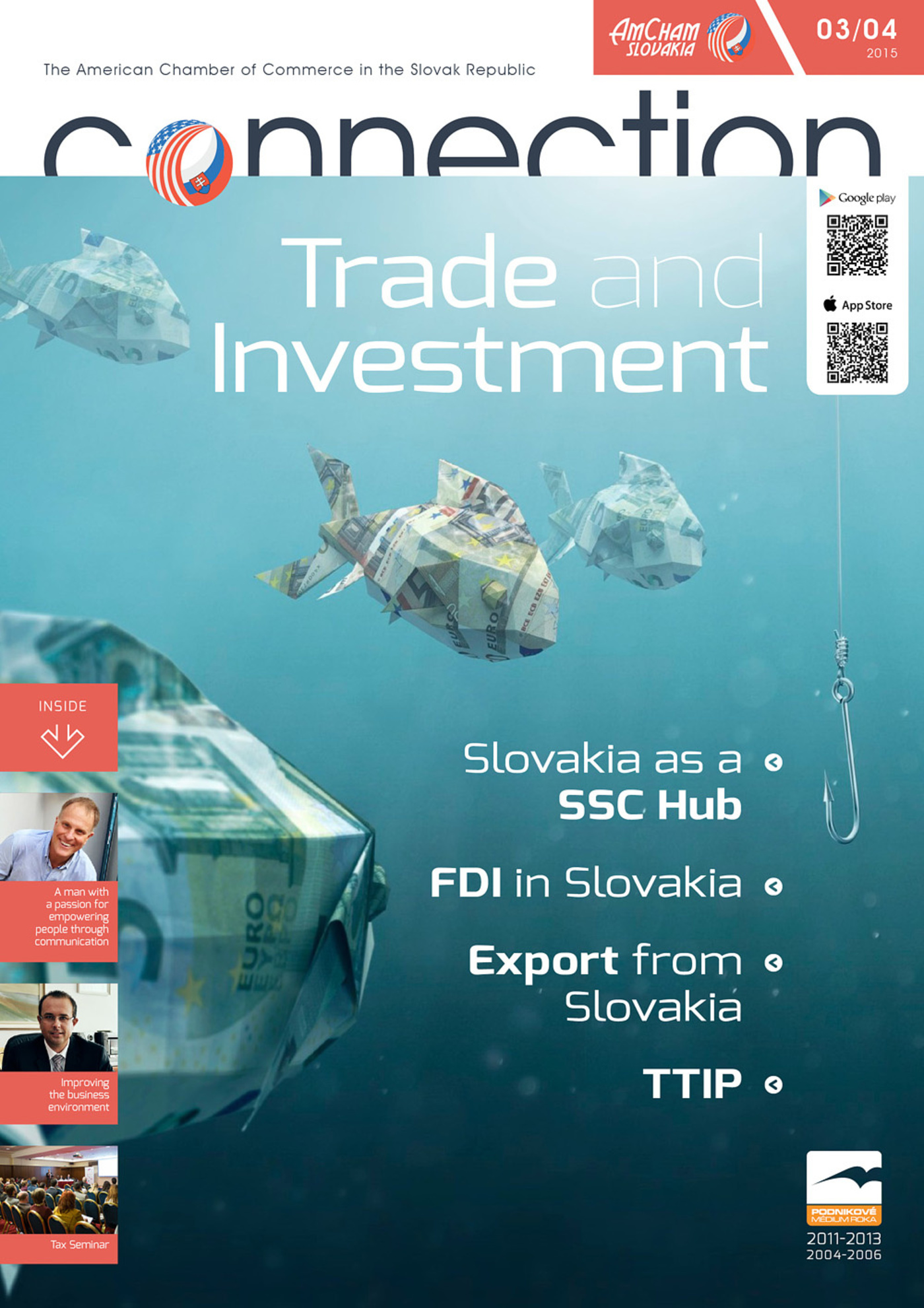Some commentators believe multinational companies have more to gain from new TTIP rules which would not be applicable to SMEs which only operate at a national level. The potential benefits to SMEs need to be better communicated and the real question is whether TTIP will lower NTB barriers and unlock the potential for Slovak SMEs abroad.
High Expectations
Recently, the European Commission publicly introduced the proposed text of the SME chapter. This chapter is aimed at tackling some of the above-stated concerns and there is a need to adequately assess what this will amount to in reality. There are 20 million SMEs in the European Union compared with 30 million in the United States. They are a key driver for economic growth and job creation and play an important role in generating innovation. SMEs have an incredible potential to benefit from an increase in trade – either directly or indirectly as part of global value chains, for example, in the automotive and electromechanical industries in Slovakia. TTIP is intended to remove the costs and complexities that affect all companies, but removing non-tariff barriers could impact SMEs even more than larger companies that already benefit from economies of scale.
In a report from March 2013, the U.S. International Trade Commission stated that SME exports to the EU now stand at USD 80 billion and the most important issue for U.S. businesses remains EU technical regulations and other trade barriers. The cost of meeting the high number of EU technical regulations and other requirements is particularly high, as in many cases they require U.S. firms to hire representatives in the EU and perform extra tests.
Too Diverse Regulation Within the EU
In its “Trade Across Barriers” category, the Doing Business 2015 report points to significant diversity within the EU. Sweden, Ireland, Estonia and Denmark are among the ten best countries as regards export/import procedures. Export/import procedures take six to nine days, requiring up to four documents and the costs per container are relatively competitive with the rest of the world. In contrast, in Slovakia, Hungary and Croatia, 16 to 19 days are required to undertake export and import procedures. These countries require five to seven documents for administration and costs per container are almost double. As a result, the benefits from TTIP are likely to vary within the EU. The Small Business Act for Europe (SBA) reflects the Commission’s political will to recognize the central role of SMEs. The SBA includes a wide-ranging set of measures that are designed to assist small companies; it has already proved to be a good basis for SME policy. The SBA is built upon the exchange of information and best practices and also supports the internationalization of SMEs.
The Commission study on internationalization opportunities for SMEs in 2011 found that SMEs face a number of obstacles to tapping the global market, not least when it comes to accessing market information, locating possible customers and finding the right partners, even though international markets offer substantial opportunities for European companies. They face more complex issues such as compliance with foreign laws, mandatory contract law rules, customs rules, technical regulations and standards, managing technology transfer and protecting intellectual and industrial property rights.
What Is Most Important?
When we talk about SMEs within TTIP, we have to differentiate between “trade” and “trade-supporting” provisions. The latter includes the elimination of tariffs, the simplification of customs procedures, an overall reduction of regulatory barriers and information exchange.
Currently available information is insufficiently targeted and dispersed, which makes it imperative for both sides to create strategic intelligence points. The TTIP chapter dedicated to SMEs needs to include rules to ensure transparency and early availability of information. It is very difficult for a small EU company, such as a Slovak one, to follow regulatory developments in all U.S. states, for example, to know when a new standard or regulation becomes applicable, or if a given technical requirement applies in two different states. The company must be able to find information on market conditions easily so it can take appropriate decisions to start, maintain or expand business. SMEs need to be able to consult on gaining access and operating within U.S. and EU markets, including compliance with federal and sub-federal regulations, standards and other regulatory compliance requirements.
Hopefully, TTIP will finally allow Slovak SMEs to take advantage of an open market.
Marián Letovanec, Director of the National and International Programmes Section, Slovak Business Agency



Follow us